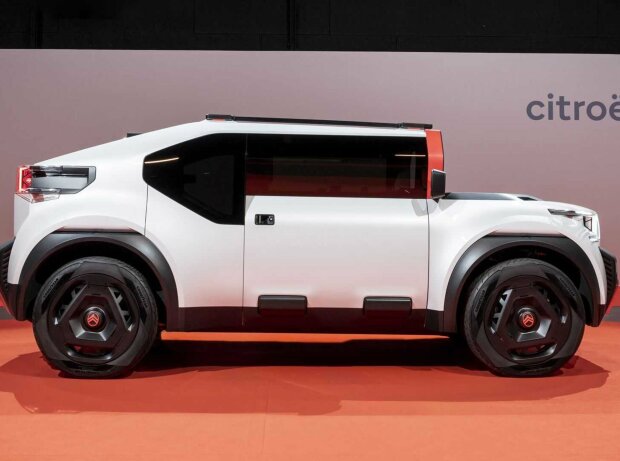Citroen CEO: Smaller, lighter cars in ideal post-SUV world
Vincent Cobée believes that the spread of electric cars will phase out SUVs in favor of smaller, more aerodynamic cars
(Motorsport-Total.com/Motor1) – After telling Auto Express that the spread of electric vehicles will gradually spell the end of conventional SUVs, Citroën CEO Vincent Cobée spoke to Autocar about what’s going on in the “post-SUV world” could happen.

Citroen Oli Concept
He thinks automakers will have no choice but to design cars with lower rooflines and slimmer bodies to improve efficiency. Ideally, reducing weight would also help increase the range of electric cars, but that’s easier said than done.
Using aluminum instead of steel increases manufacturing costs, which inevitably translates into the final price of the vehicle. Since car manufacturers want to avoid significant additional costs, they are looking for other ways to increase the range of an electric vehicle. Cobée emphasized the growing importance of more aerodynamic design, as tall and boxy bodies hamper efficiency.
The Citroën boss reckons regulators will curb the SUV boom by only granting incentives to EVs that weigh less than a certain amount. Cobée therefore believes that sooner or later car manufacturers will have to develop smaller electric vehicles. Manufacturing aluminum-bodied SUVs for the mass market is not feasible due to the high cost, so more compact vehicles with slimmer shapes will be the way to the electric age.
Cobée pointed out that the Oli concept presented last year could be a solution. It was developed with a target weight of just 1,000 kg and a decent range of 400 kilometers with a 40 kWh battery pack. A low environmental impact has been achieved through the use of recycled materials. For example, the roof, truck bed and hood were made from recycled corrugated cardboard sandwiched between sheets of fiberglass.
To achieve the light weight, the company removed the sound system and replaced it with detachable Bluetooth speakers. The front seats also use 80 percent fewer parts than seats in a comparable SUV, while the wheels are made from a combination of aluminum and steel to further reduce weight.
The Oli was an exercise in simplicity taken to the extreme. Cobée believes automakers and regulators need to find common ground on the road to carbon neutrality.
Source: Autocar
